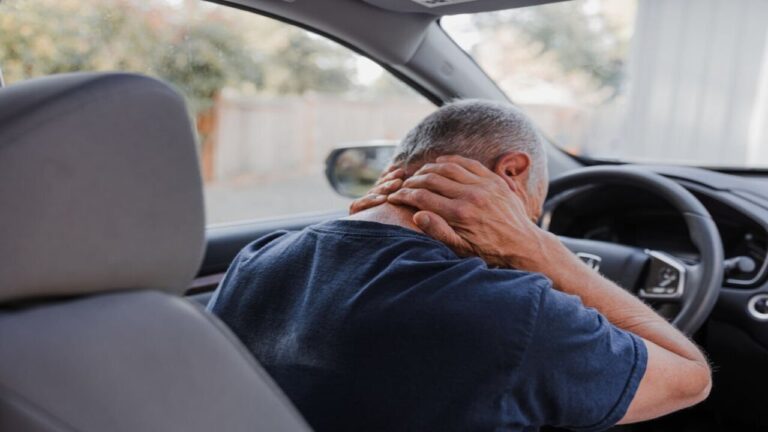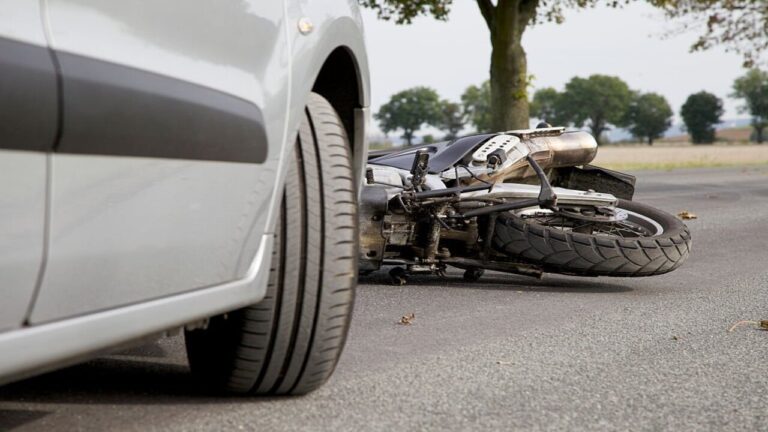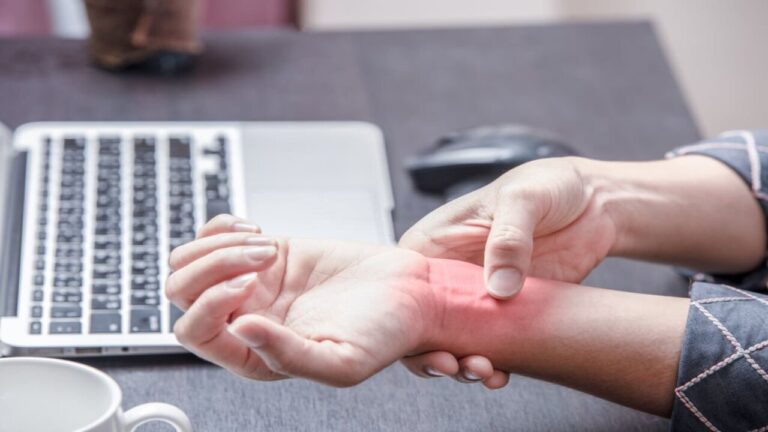Seven of the most common car accident injuries include soft-tissue injuries, traumatic brain injuries, spinal cord trauma, broken bones, lacerations, internal bleeding, and mental health complications. There is no limit to the types of injuries commonly suffered in car accidents. One thing’s for certain: if you suffered injuries in a collision, you should seek prompt medical attention, no matter how minor they may appear.
Naples Community Injury Center offers customized treatment plans to survivors of car accidents, falls, and other injurious situations. When you call our office, you can schedule an appointment with one of our care providers. We set you on the path to recovery. Call (239) 631-5445 to connect with our staff.
We Treat Car Accident Survivors With These Injuries
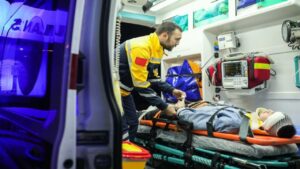
Per “Motor Vehicle Collisions,” many factors can influence the types of injuries someone suffers in a crash. Age, pre-existing health conditions, and body mass index all play a role. The types of injuries suffered can even depend on the accident itself. For instance, the publication notes that rear-end collisions can cause whiplash and spinal fractures.
Common car accident injuries include:
Soft-Tissue Injuries
Mayo Clinic reports that soft-tissue injuries involve the muscles, tendons, and ligaments. When these areas are stretched, torn, or bruised, one may suffer:
- Sprains
- Strains
- Whiplash
- Contusions
- Bursitis
- Tendonitis
A soft-tissue injury may only get worse with time, impeding your mobility and quality of life. A healthcare provider from our team can diagnose your condition and render an appropriate course of treatment.
Traumatic Brain Injury (TBI)
A sudden blow or jolt to the head can cause a traumatic brain injury. This can happen when the brain moves inside the skull or suffers damage. TBIs can present many complications, including:
- A loss of coordination and mobility
- Decreased cognitive processing
- Mental health complications, such as depression and anxiety
- Memory loss
- Blurred vision
- Slurred speech
Our team can’t undo the trauma of a brain injury. Yet, we can address the physical complications that accompany it. Using a combination of lifestyle changes and physiotherapy, you could see a remarkable improvement in your condition.
Spinal Cord Trauma
Spinal cord trauma can include:
- Herniated discs
- Fractured vertebrae
- Partial paralysis
- Slipped discs
- Nerve damage
We employ chiropractic adjustments when addressing spinal cord injuries and trauma. These painless, non-invasive procedures can have you feeling better within a few weeks. You could even find relief sooner.
Broken Bones
Broken bones are no laughing matter. Even a hairline fracture can cause excruciating pain. What’s more, without appropriate medical care, the bone could heal improperly, requiring bone-setting.
Lacerations
A laceration is a deep cut that may penetrate into the body’s muscles and fatty tissue. Once healed, scar tissue may limit the patient’s range of motion and cause other complications.
Internal Bleeding
Internal bleeding is a serious matter after any traffic accident. Not only can it become fatal, but it’s generally not visible to the naked eye. According to MedlinePlus, some symptoms of internal bleeding include:
- Trouble breathing
- Weakness
- Increased heart rate
- A swollen stomach
- Changes in skin color
- Chest pain
By visiting a doctor immediately after the accident, you can get a fast diagnosis that results in a comprehensive treatment plan.
Mental Health Complications
A car accident can result in more than physical injuries; it can also result in mental health complications that prevent you from going to work, spending time with your family, and living your life. Examples of these conditions include anxiety, depression, and post-traumatic stress disorder (PTSD).
Sometimes, mental health complications accompany physical conditions. For instance, someone with spinal cord trauma may experience depression as a result of their decreased mobility.
What Happens When You Visit Naples Community Injury Center After a Collision?
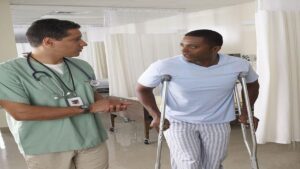
From the moment you walk into our facility, you can expect us to:
Take Your Medical History
During your first appointment, you’ll provide some basic information about your health, including:
- Whether you’ve had surgery
- What medications you’re taking
- Your age and weight
- Whether you’ve sought treatment for this condition previously
We encourage you to be honest with us. We’re not here to judge. We’re here to create a treatment plan that aims to better your future and overall well-being.
Diagnose Your Condition
We may order X-rays and other imaging scans to get a closer look at your condition. Then, we cross-reference our findings with the information you shared to diagnose your ailment. This allows us to implement your treatment plan and monitor your progress.
Guide You Toward Maximum Medical Improvement
Maximum medical improvement looks different for everyone. For instance, the goals for a spinal cord patient and someone with a broken bone will likely look very different. We base your treatment goals on many factors unique to your situation, including whether you can make a full recovery.
Your treatment plan may comprise:
- Light exercise and stretching
- Electrical stimulation therapy
- Dietary changes
- The use of assistive devices
- Medications
- Chiropractic adjustments
- Physiotherapy
As noted, we will make changes to your treatment plan as needed.
Set You on the Path to Wellness
At the conclusion of your treatment plan, we may ask that you return periodically to maintain your progress. This may include undergoing additional imaging scans and resuming some parts of your treatment plan. At Naples Community Injury Center, we don’t offer temporary fixes; we offer a way to better your condition, both now and in the future.
What Should I Do in the Immediate Aftermath of a Car Accident?
We cannot overemphasize the importance of seeking medical attention after a collision –– even if you’re able to walk away from the incident seemingly unscathed. A healthcare professional can assess your condition and prevent it from getting worse. When you visit our team, we may recommend:
- Taking time off work
- Limiting your physical activity
- Limiting your caloric intake
- Taking all medications as prescribed
- Staying hydrated
Many patients are surprised when we tell them to quit smoking. Smoking and vaping prevent oxygen from adequately flowing through the bloodstream, slowing down how the body heals. We want you to heal as soon as possible.
Call Naples Community Injury Center to Learn More
If you suffered injuries in a car accident, we encourage you to call our team. We can assess your injuries and provide a treatment plan that can help you feel better.
To ask questions about our services or schedule your first appointment, call (239) 631-5445.
